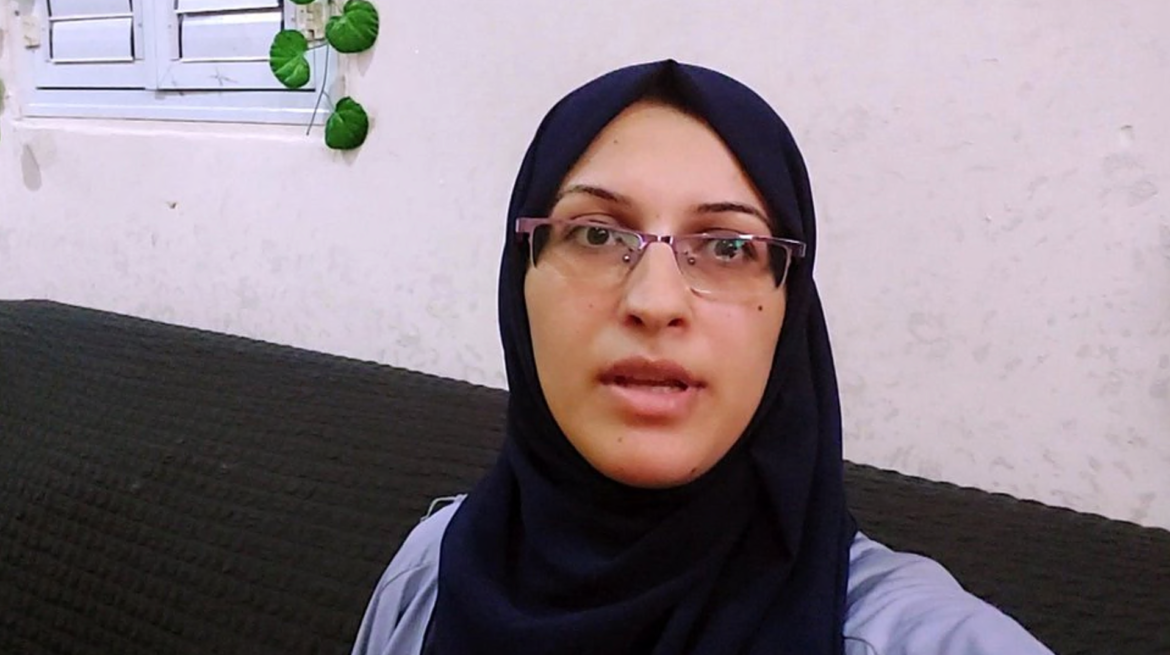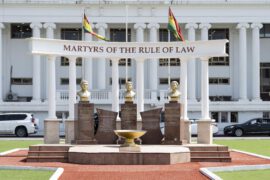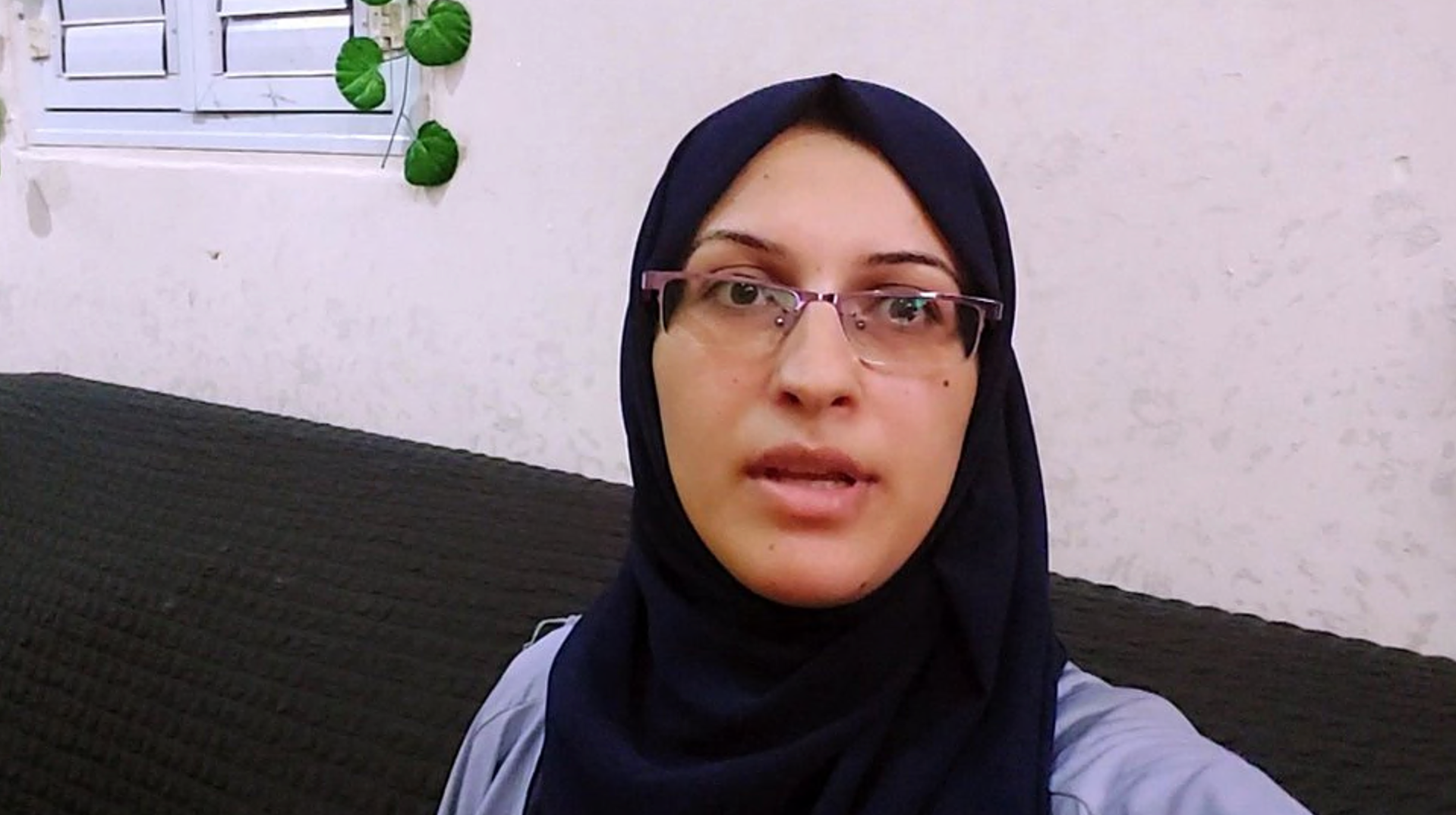
One month ago, Gaza resident Jumana Emad dey di final stages of her pregnancy.
She dey happily share pictures of her heavily pregnant belle, as she dey wait to put her delivery plan into action.
She know say she go give birth to a girl, her husband dey excited, her hospital bag don dey packed and her four-year-old daughter Tulin no fit wait to meet her baby sister.
Na den evri tin come change.
Hamas bin kill more dan 1,400 pipo for Israel and take more dan 200 pipo hostage for one attack for 7 October. Israel launch retaliatory air strikes on Gaza which – di Hamas-run health ministry say – don kill almost 7,000 pipo.
“I dey scared,” Jumana tell di BBC. “I dey labour among continuous shelling.”
Di 25-year-old freelance journalist follow Israeli orders to comot from her house for north. She bin leave Gaza City two days afta Israeli strikes begin and begin go south.
Di nine months pregnant Jumana wey dey fear, carry her daughter go one family member house. She take only one single piece of clothe, a box of milk and a small bag for her daughter.
“Di situation dey tough,” she explain for one voice message.
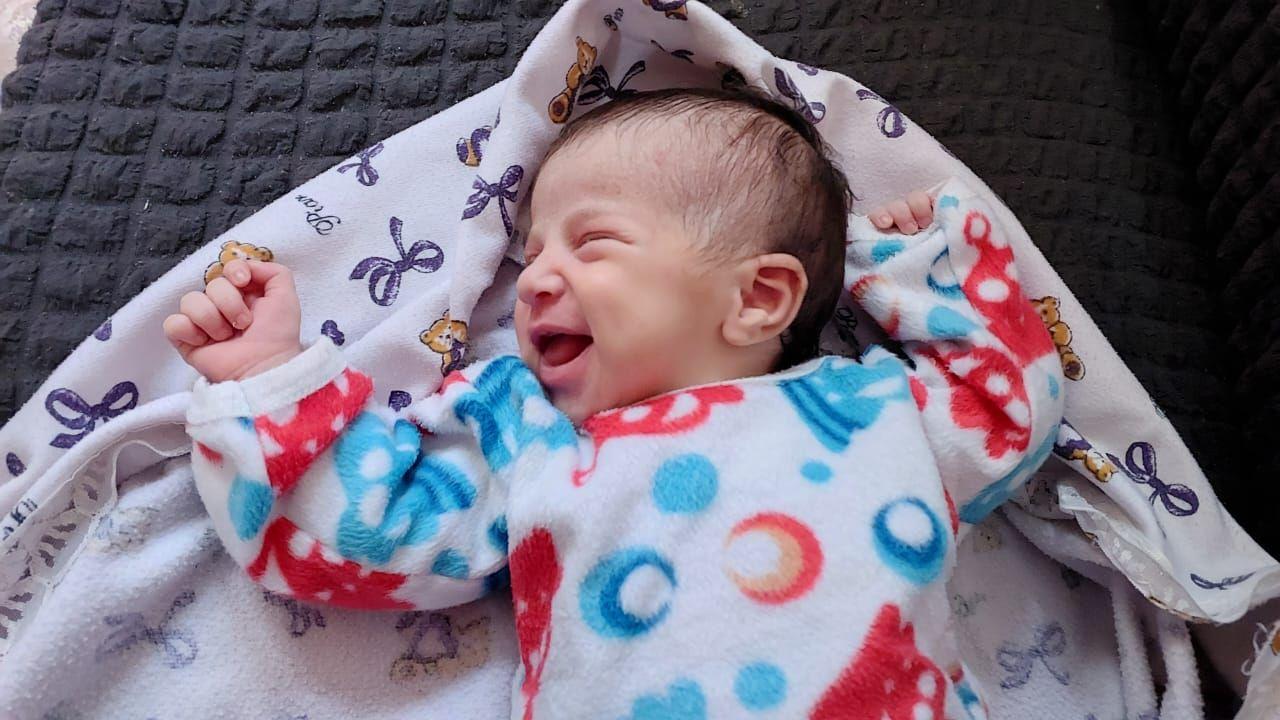
“We no fit sleep for night. Shelling too plenty and we gatz go anoda place. Pregnant women like me suppose dey go out for walk but becos of di war we no fit to go out even to buy food,” she explain for anoda message.
Jumana dey alwasy tok about light wey no dey, internet interruptions and water shortages, in addition to her fear and anxiety over giving birth in such difficult circumstances.
On Friday 13 October, Jumana go into labour.
She bin originally plan to go to Al-Shifa Hospital for Gaza City, wey be big hospital, but dem tell her say e dey under immense pressure. Instead, Jumana go to Al-Awda Hospital in Nuseirat, a smaller hospital for di middle of di Gaza Strip.
But even to reach dia dey hard. In pain and in labour Jumana struggle to find pesin to take her. “Taxi drivers dey fear, and ambulances no get time for woman wey wan born,” she explain.
She describe di hours of labour as hard and full of fear. “Di explosion and shooting wey happun for one house wey dey next to di hospital no be small, di sound dey so loud to di extent say I think say di shelling don reach di hospital wey we dey. Injured pipo dey arrive. I fit hear screams from evri direction. I dey also think about my first daughter. I dey worried about her becos she dey far away from me.
“All I fit think about na say I wan to deliver my baby no matter wetin happun.”
Jumana describe her feeling of shock wen hours later dat evening, she bin give birth to a baby girl, who she decide to name Talia.
“Her crying mean say we all still dey alive,” she recall.
Bed no dey available for Jumana immediately afta childbirth. In pain and bleeding she gatz wait until dem see wey dem squeeze into one small room.
“I dey lucky to get one, oda women bin lie down on top chair and on di floor in di hospital corridor immediately afta dem born,” she tok.
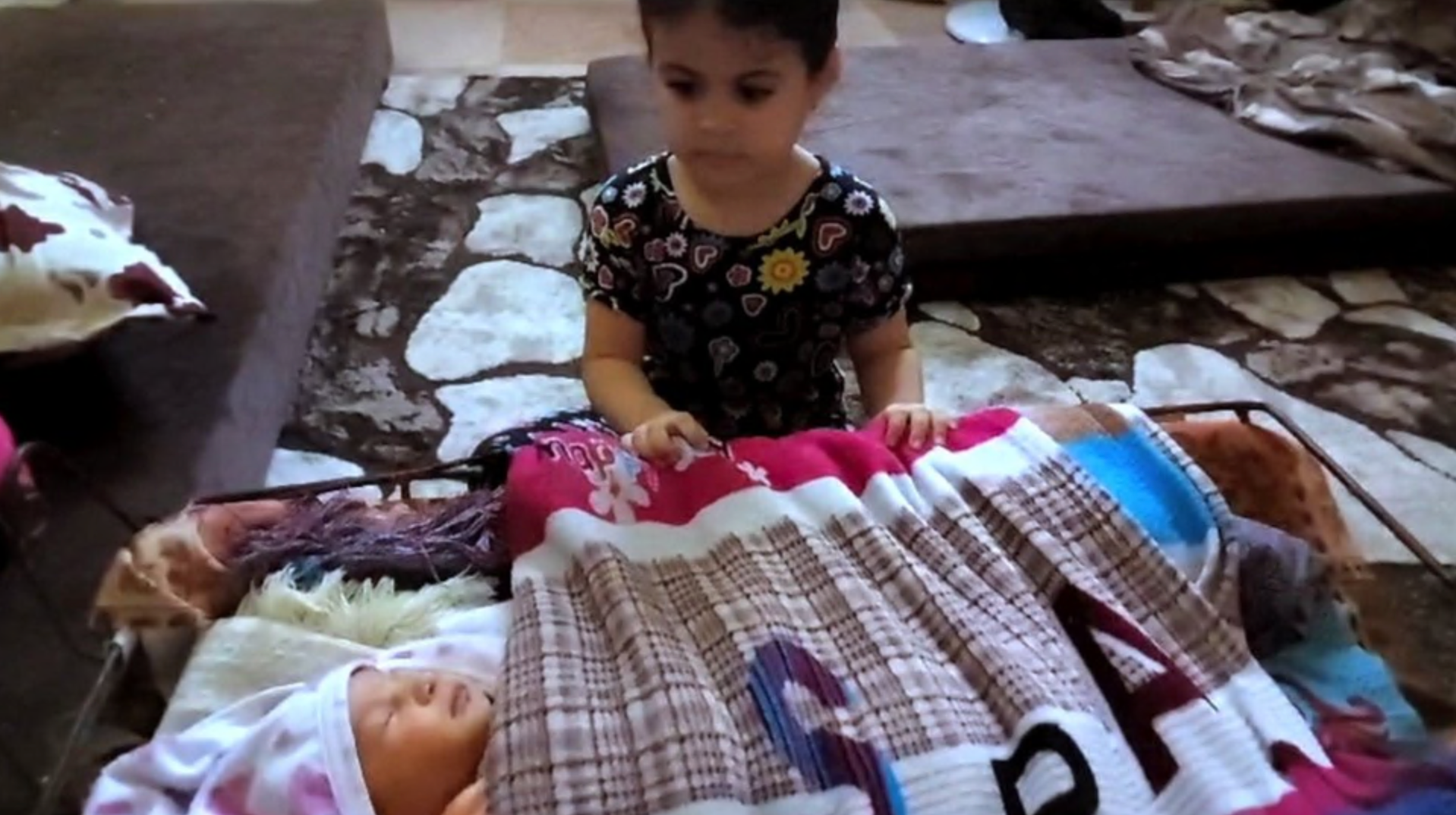
Di United Nations Population Fund (UNFPA) estimate say e get about 50,000 pregnant women for Gaza wit 5,500 of dem wey dey expected to botn for di next 30 days. E say hospitals get too much crowd and dem dey run out of medicine and basic supplies.
Di day afta she born, Jumana send a video of herself holding her baby daughter for one taxi, wey she wrap inside a white blanket.
She don comot di hospital to join her family but say even dat one na big challenge.
“Di lift stop to dey due to say light no dey,” she tok. So Jumana, on di fourth floor of di hospital, in pain afta she born and wit her newborn for her hand begin dey waka down several stairs to reach outside.
Once out of di hospital, she dey faced wit trying to get transport back to di place wia she bin dey stay.
“We spend one hour dey look for taxi, and none of di drivers agree to take us. Dem dey fear afta one nearby explosion in di morning. In di end, we find one, but e ask for a higher fare and e still no drop us off in front of di house.”
Jumana say childbirth in such hard circumstances don affect her. “I dey don tire mentally. I no longer get di desire to do anytin,” she admit.
But she tell me say Baby Talia dey do well: “She be a mix of my features, her sister, and her papa.
“If no be di war, I for wan celebrate a beautiful event one week afta di birth. I for invite all my family members and hold Aqiqah [a traditional Islamic celebration] for her,” Jumana tok.
She say she no sabi wetin di future hold for her family but dey grateful for dia new arrival saying: “She be my hope for dis life of war and death.”

